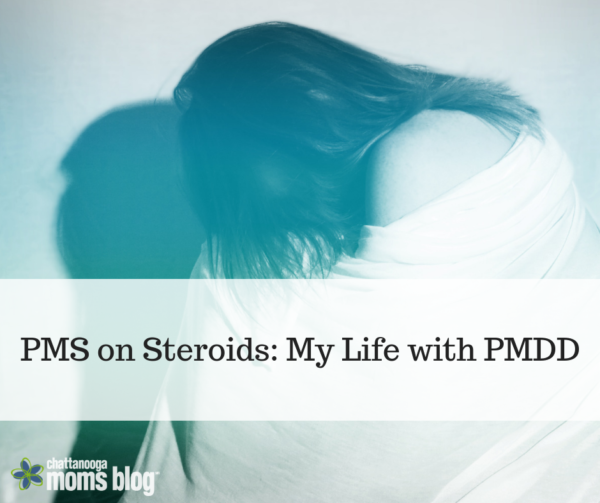 Have you ever felt yourself turn into a completely different person right before your period? About 20% of menstruating women experience PMS. Has your PMS ever lasted 5-10 days and been extremely intense? It has for me; in fact, mine lasts about 10 days and I become a completely different person, making life challenging.
Have you ever felt yourself turn into a completely different person right before your period? About 20% of menstruating women experience PMS. Has your PMS ever lasted 5-10 days and been extremely intense? It has for me; in fact, mine lasts about 10 days and I become a completely different person, making life challenging.
This disorder is called premenstrual dysphoric disorder (PMDD) and 5-8% of women in the US have this condition.
Unfortunately, PMDD can be misdiagnosed as depression or bipolar disorder. The difference is that PMDD is caused by the change in hormones. Women who suffer have an extreme response to the normal fluctuation of hormones, from ovulation until the 1st or 2nd day of their period starting. This response causes changes in the neurochemical pathways in the brain that control your general well-being and mood. Exactly what causes the sensitivity is not understood very well, which makes treatment options limited.
I thought I was going crazy.
I’d go from being my normal self, having energy, being social and productive, to being extremely depressed, lethargic, irritable, and sad. I’d wonder what was happening and would find myself thinking that maybe I was depressed. My husband noticed the changes and encouraged me to get help. I was reluctant because I thought that if I waited it out, it would go away and I would be me again. The cycle continued, however. I finally reached out for help when my PMMD led me into a depressive state. I felt so badly about myself that when I returned to feeling OK, I carried guilt for being an unproductive person. I explained my cycle’s nature to a professional, who mentioned bipolar disorder. I was scared, but relieved that maybe this wasn’t just in my head. I talked to my husband who said he thought it correlated to my menstrual cycle, which I hadn’t noticed. I started documenting, researching and paying attention to my cycle and I found PMDD, which fit perfectly.
I can’t say I’ve found a cure or treatment that works yet, but at least I know what the issue is and the people in my life can give me love and empathy when I am pushing them away. I am in a support group for PMDD sufferers, where I came across this description:
“Suicidal thoughts, intrusive thoughts, overactive emotions, extreme irritability, hearing yourself yelling or being out of control but being unable to stop it. Finding yourself acting impulsively or ‘manically’ ending relationships, damaging friendships, spending too much money. Some find themselves self-medicating. It takes place sometimes after ovulation and ends when your period starts. Most women get it 2-5 days. Some much longer, even sometimes right at ovulation until the start of the next period. If someone thinks they could be having symptoms they should start tracking their symptoms and cycle to see if they line up.” — Anonymous
The two most common treatments for PMDD are anti-depressants and birth control. I have not found a cure yet, but eating well, exercising, and having lots of empathy for myself help me push through those tough days. It also helps to know that it’s not a permanent state. About 15% of PMDD sufferers commit suicide. The thoughts during that time get very dark and hopeless. It helps to have lots of support and be gentle with yourself. For more information check out IAPMD.



















Getting my PMDD diagnosis was life changing. For once, that experience of acting out and having no control over it (as you said, you hear yourself yelling and being angry and you don’t want to do it but you can’t stop)…it made sense. And once I realized what was happening I was able to start recognizing when it was coming and I could try to control it. Progesterone changed my life!
Comments are closed.